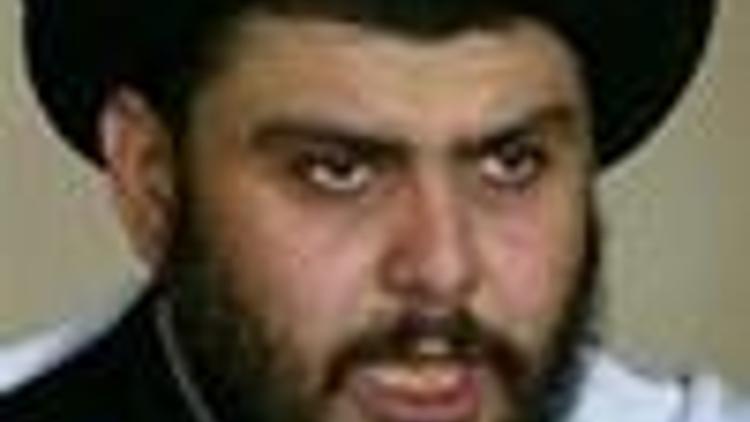Iraq's Sadr suspends militia operations indefinitely
Güncelleme Tarihi:

Radical Iraqi Shi'ite cleric Moqtada al-Sadr on Thursday ordered a halt to armed operations by his 60,000-strong Mahdi Army militia, blamed by Washington for some of the worst sectarian killings of Sunni Arabs in the war-torn country.
"The Mahdi Army suspension will be valid indefinitely and anyone who does not follow this order will not be considered a member of this group," Sadr said in a statement issued by his office in the Shi’ite shrine city of
The militia, created after the 2003 U.S.-led invasion to fight invading American troops, became the most active and feared armed Shi’ite group in post-Saddam Hussein Iraq, accused of operating death squads blamed for the killings of thousands.
In 2006, at the height of
At that time Mahdi Army death squads reportedly carried out sustained campaigns of violence -- kidnapping, torturing and brutally killing members of the minority Sunnis Arab community across
Dozens of tortured and bullet-riddled bodies of Sunni Arabs used to be found dumped on the capitals streets, allegedly killed by Mahdi militiamen.
The
"We welcome this announcement that appears to be an effort to support the Iraqi people," military spokesman Major John Hall told AFP. "The proof is always in the actions and not just in words."
Sadr said the militia would now focus more on cultural programs.
"We have set a cultural program for the Mahdi Army and we have named it Al-Mumahidun (Supporters of the Mahdi), and everybody should abide by it and whoever does not agree with it will be expelled from the army."
He did not immediately give reasons for his decision which came after he promised earlier this month to dismantle the militia if a planned security pact between
The two sides are still negotiating the pact that would govern
Iraqi Prime Minister Nuri al-Maliki said this week that they had agreed there would be no foreign forces in
The White House has repeatedly said no deal has been finalized.
Sadr ordered a six-month freeze of Mahdi Army activities in August last year after allegations his fighters had been involved in clashes with security forces in the shrine city of
He extended the freeze for a further six months in February.
A key Sadr aide said the latest announcement served to renew the existing freeze, as well as to ensure plans to turn the Mahdi Army into a social organization are actually carried out.
"We want to transform as large a number as we can of Mahdi Army fighters into a social organization," Sheikh Hazem al-Araji told AFP.
But he did not say the Sadr movement would renounce an armed wing entirely, instead speaking of a smaller, more disciplined force, a plan first announced by Sadr in June.
"The resistance is for the professional fighters only that will be selected according to Sadr’s rules," Araji said.
Sadr’s decision to stop fighting in 2007 came around the same time that many Sunni rebel groups decided to join forces with the
These factors have led to an overall drop in violence to a four-year low.
Maliki took on the Mahdi Army in March when he ordered an offensive against Shi’ite militiamen in the southern city of
Sadr forces have also clashed with other Shi’ite factions, notably the Supreme Iraqi Islamic Council, a Shi’ite religious party led by Abdel Aziz al-Hakim, a key government ally of Maliki.
Currently believed to be in
The group takes it name from Al-Mahdi Al-Montazar (the Awaited Mahdi), the revered 12th Shi’ite imam who disappeared in 907, and who Shi’ite’s believe will return to bring justice to the world.

